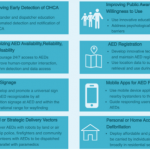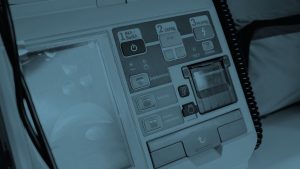
Bystander cardiopulmonary resuscitation (BCPR), early defibrillation and timely treatment by emergency medical services (EMS) can double the chance of survival from out-of-hospital sudden cardiac arrest (OHCA). We investigated the effect of the COVID-19 pandemic on the pre-hospital chain of survival.
We searched five bibliographical databases for articles that compared prehospital OHCA care processes during and before the COVID-19 pandemic. Random effects meta-analyses were conducted, and meta-regression with mixed-effect models and subgroup analyses were conducted where appropriate. The search yielded 966 articles; 20 articles were included in our analysis. OHCA at home was more common during the pandemic (OR 1.38, 95% CI 1.11-1.71, p = 0.0069). BCPR did not differ during and before the COVID-19 pandemic (OR 0.94, 95% CI 0.80-1.11, p = 0.4631), although bystander defibrillation was significantly lower during the COVID-19 pandemic (OR 0.65, 95% CI 0.48-0.88, p = 0.0107).
EMS call-to-arrival time was significantly higher during the COVID-19 pandemic (SMD 0.27, 95% CI 0.13-0.40, p = 0.0006). Resuscitation duration did not differ significantly between pandemic and pre-pandemic timeframes. The COVID-19 pandemic significantly affected prehospital processes for OHCA. These findings may inform future interventions, particularly to consider interventions to increase BCPR and improve the pre-hospital chain of survival.
https://pubmed.ncbi.nlm.nih.gov/35039578/






